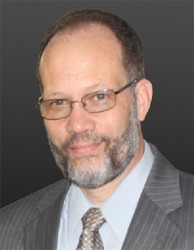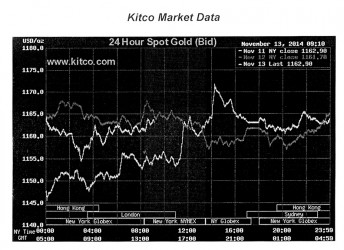Against the backdrop of periodic differences amongst Caribbean Community (Caricom) countries over access to intra-regional markets, Caricom Secretary General Irwin LaRocque has restated what he said is the regional movement’s commitment to a Caricom Single Market and Economy (CSME) as a tool for the collective growth of the region’s economies.
While a single economy for the region is widely regarded as a longer-term target, intra-regional squalls have broken out over whether or not member states share an equal commitment to what is seen as the much more realistic short term objective of a single market.
But LaRocque told last Friday’s Guyana Manufacturing and Services Association (GMSA) Annual Dinner and Awards Ceremony that the objective of a Single Market was “at the very top” of Caricom’s strategic agenda.

Local manufacturers, particularly in the agro processing sector have repeatedly told this newspaper of difficulties associated with accessing regional markets, particularly in Trinidad and Tobago. More recently, there have been muted complaints about what is believed to be the absence of barriers to the entry of goods from other Caricom states into Guyana in circumstances where this generous import regime is only minimally reciprocated.
But according to the Caricom Secretary General competitiveness for business throughout the community was likely to be enhanced through “full utilization of the provisions of the CSME… We have heard from the private sector about the ease with which you should be able to conduct your business throughout the region. We, as a Community, are committed to realizing that key objective,” LaRocque told the gathering.
And according to the Caricom Secretary General the regional movement recognizes “the need to improve the doing business environment in the Community, and align it with international best practices” that include “the harmonization of business-related rules and regulations within the CSME. To put it simply, an enterprise operating in the CSME should be faced with the same regulations, wherever their business is conducted.”
According to LaRocque, work towards the creation of a single market is almost completed in the area of harmonized customs legislation. He said that further similar work will be undertaken in the areas of laws and regulations governing securities markets, a development which he said “would allow businesses to raise capital anywhere within the CSME.”
Additionally, the Secretary General disclosed that Caricom was in the process of “creating a regional business registry “that would allow for the registration in one member state of the CSME to be sufficient to operate in any other.” The aim of this, he said, was “to establish a single jurisdiction for the operation of business.”
La Rocque also told the GMSA event that the regional movement had commenced the operation of the Caribbean Agricultural Health and Food Safety Agency in Suriname. The agency, he said, “will work with member states to harmonize the different policies, practices, entry requirements and standards in Caricom, to facilitate the flow of agricultural goods.” The advent of the new regional food safety agency comes in the wake of increasing safety-related measures being taken by countries in North America and Europe including the United States’ Food Safety Modernization Act (FSMA) the requirements of which, some Caricom countries, including Guyana, are as yet unable to comply with.

Kitco is a Canadian company that buys and sells precious metals such as gold, copper and silver. It runs a website, Kitco.com, for gold news, commentary and market information
Meanwhile, LaRocque said too that the Community was working towards the creation of a Single Information and Communication Technology (ICT) space within the region aimed at establishing “modern, open telecommunications infrastructures and regulatory regimes… to provide universal and affordable access.” He said that advantages, such as “number portability and lower broadband charges, will contribute to the reduction of the cost of doing business, improve our competitiveness and create new commercial opportunities.”
In addressing issues affecting the growth of the business community in the region LaRocque told the GMSA event that energy continues to be the major cost-driver for the business community, pointing out that the high cost of energy adversely affects competitiveness. “The average cost of electricity across the region, is more than 30 US cents per kilowatt hour. The benchmark is 10 cents. This is among the highest in the world, according to an Inter-American Development Bank study,” LaRocque declared.
In response to its unrelenting energy crisis La Roque said, the Community had developed “an energy policy that emphasizes energy efficiency, and development of renewable energy alternatives, for both domestic use and export.” He also outlined what he said were “other alternatives” for the region including solar, geo-thermal and wind power. “Investment in renewables will reduce the cost of energy to consumers. It will also free up much needed foreign exchange, and create opportunities for export of electricity,” he added.
An additional significant cost factor affecting production in the region was “safe, reliable, affordable transportation of both goods and people,” a facility which he said was “essential, given our wide geographic spread.” According to LaRocque the delivery of such services, in the air and at sea is no easy task though its realization “would serve to strengthen our economic integration, through trade and the movement of people.
“I am advised that transportation and energy costs can account for as much as 40 per cent of the CIF price of a product. Analysis done by the IDB suggests that if we could address those and other constraining factors, intra-regional trade could almost double in the long run.”





